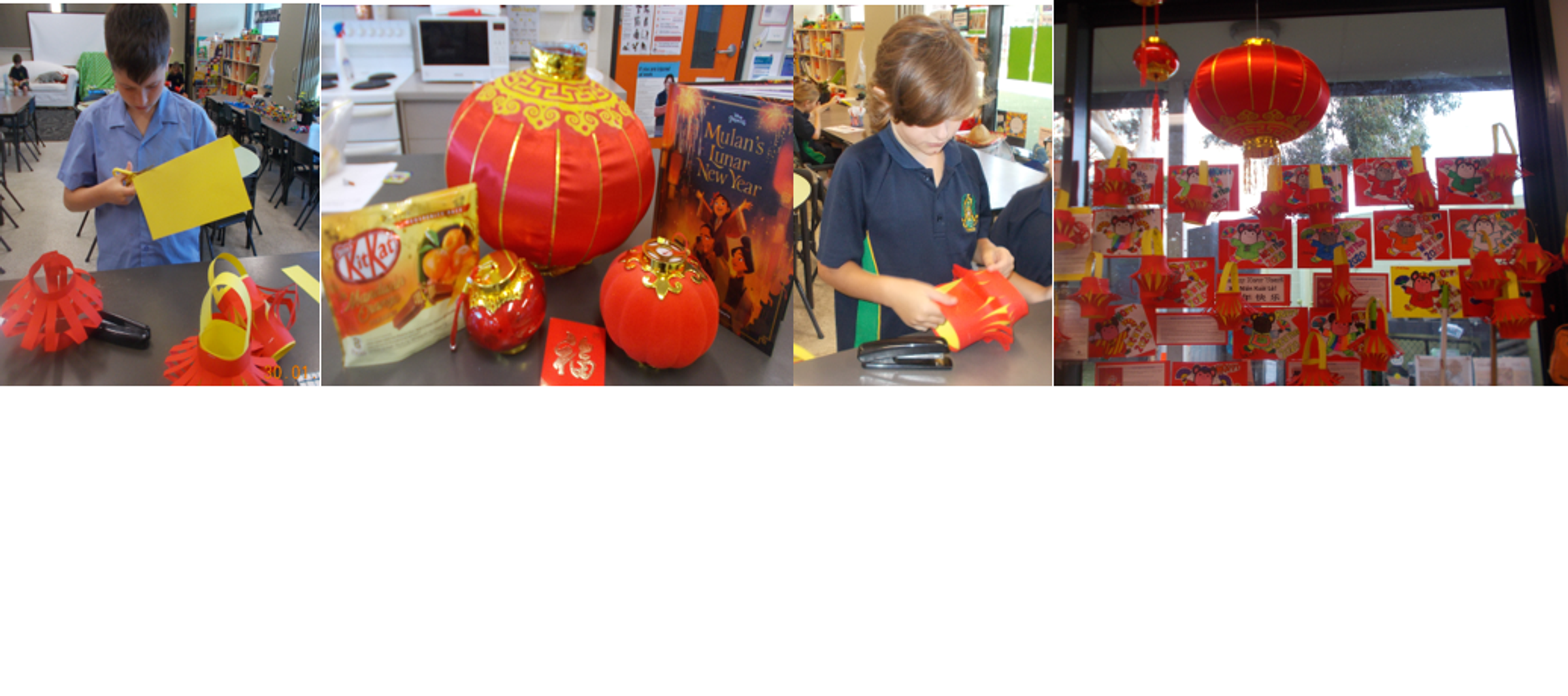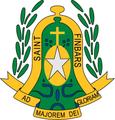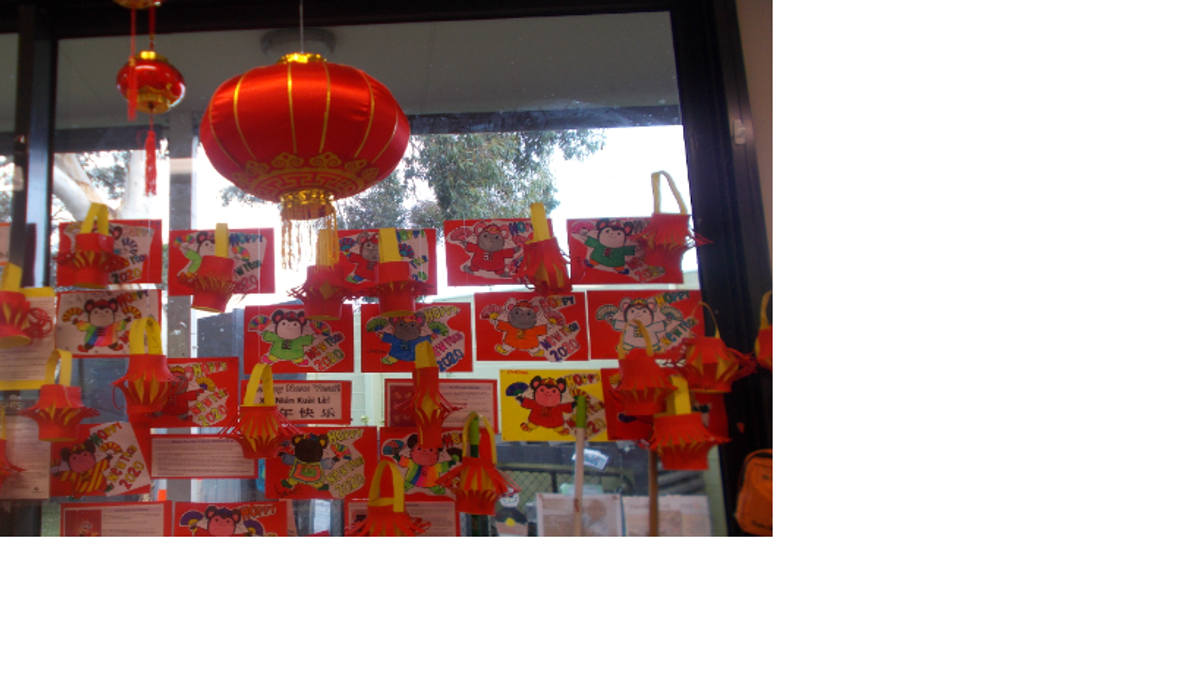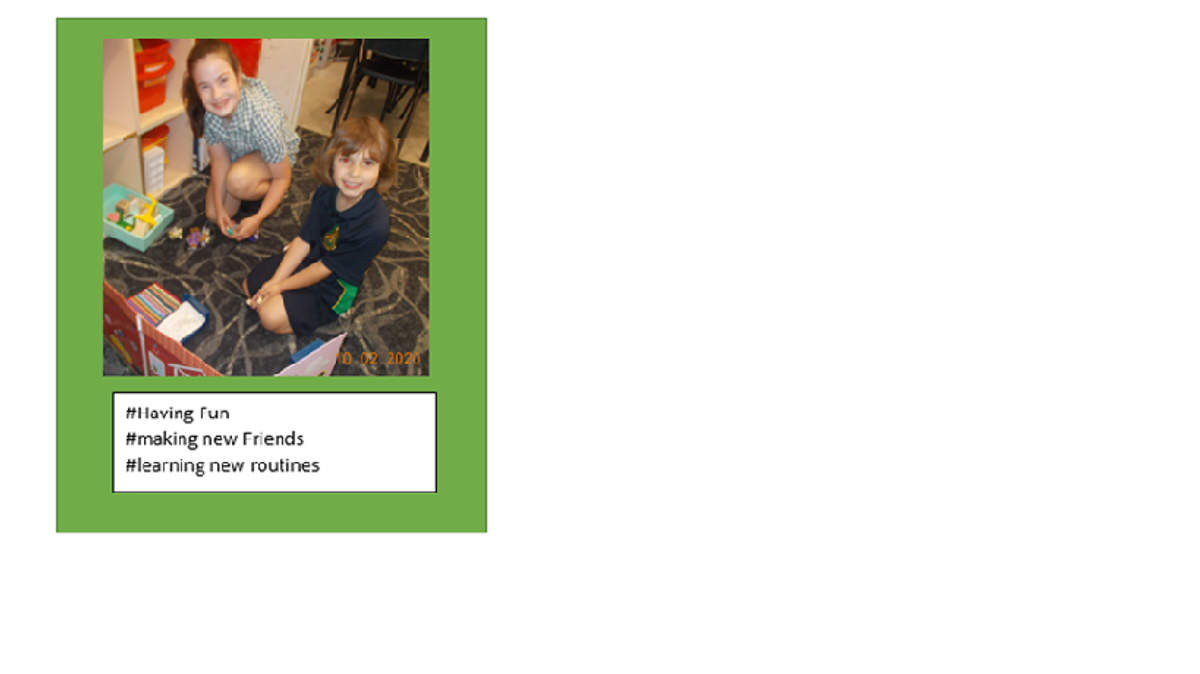Outside School Hours Care

Dates to remember
Fri 6 March School Closure Day – OSHC will be OPEN from 8-6
Mon 9 March Labour Day Holiday - OSHC will be CLOSED
Communication with the service
If you are calling to make or cancel a booking for the day your child is booked in, please call 9592 0994 directly, otherwise I will respond to your email within 2 working days.
Booking for 2020
ALL FAMILIES WHO WISH TO USE THE OSHC IN 2020 MUST
RE-CONFIRM THEIR STATUS TO CORRESPOND WITH THE NEW FEES AND TO ACTIVATE THE CCS REBATE. PLEASE LOG ONTO MYGOV.
ASC 19.50
BSC 15.50
Vac Care $42
Please also note:
1. The St Finbar’s OSHC Booking Form (CWA) Page 3 of holiday program
must be signed and received for OSHC bookings to be valid in 2020 (a copy is at the service)
2. The Direct Debit Request form-Authorisation Form must be signed and received for OSHC bookings to be valid in 2020 (a copy can be found
on the St Finbar's School website under the Community tab-OSHC))
Programming: Cultural Diversity
As educators we recognise that diversity contributes to the richness of our society. By promoting different ways of
knowing and being we nurture children’s wellbeing and development (see principle in My Time, Our Place – Framework for School Age Care in Australia - Respect for Diversity – p 11). As an educator, identifying and
extending our level of cultural competence is the basis for the creation of an environment that values and celebrates different languages, knowledge, traditions and practices.
WHAT IS CULTURE? One description that may be useful: ‘… a framework in which people live their lives based on their experiences, skills and knowledge’ (University of South Australia). Another: ‘Culture can be defined as what we create beyond our biology. Not given to us, but made by us’ (Williams, in MacNaughton, 2003, p. 14).
According to the Framework for School Age Care, My Time Our Place (p15): ‘Educators who are culturally competent respect multiple cultural ways of knowing, seeing and living, celebrate the benefits of diversity and have an ability to understand and honour differences’.
Cultural competence also includes delivering a curriculum that respects the cultural identity, language and values of Aboriginal and Torres Strait Islander peoples.
We have begun the term with a focus on Chinese Lunar New Year. Children have worked hard to develop a display that reflects their learning and experiences.
Programming: Pro-social behaviour and self-regulation activities
Children face many challenges throughout their lives. Learning acceptable behaviours and being able to regulate their own behaviours in different social and emotional environments, or when interacting with their peers or adults, are two of those challenges.
The service’s policy and practices reflect the commitment of staff/Educators to establish behaviour management strategies, with children and families, which ensure that children are treated with the same respect and empathy as an adult would expect.
There are several strategies that staff use, one of which is a display of a behaviour/discipline matrix that uses “Colour Zones”. GREEN outlines the most positive, prosocial and expected behaviours with RED outlining behaviours that warrant time away and deep reflection.
The most effective behaviour management requires consistent, active, vigilant supervision and is one of the most effective prevention strategies. The types of supervision staff/educators use include:
Indirect supervision, when you are able to hear the children in your care plus visual scans (older children)
Direct is when being able to see all children you are responsible for all the time. Close supervision is direct contact and children are within your reach when activities are dangerous or challenging. If something happens, an educator is there to intervene immediately.
The level and type of supervision that staff provide changes with the children's skill, age mix and individual risk-taking behaviour; on dynamics and size of the group.
Positive Guidance Strategies
Our job is make positive behaviour more attractive than negative behaviour, build skills when skills are lacking, and find ways to protect children from repeated aggression. We ask children to take responsibility for his/her actions, rather than trying to determine who started an incident and we follow through with consequences. We acknowledge positive behaviour, show students we like them, look for signs of progress, and wait. Individual replacement behaviour plans are devised for those who are repeatedly aggressive to peers and we plan experiences that develop and teach pro-social behaviours such as inclusion, friendship, problem solving, goal setting, and anti-bullying strategies. All in all, these practices serve to help students make good, "safe" choices that determine their health and wellbeing.
(Resource-Schools Where Everyone Belongs; Practical Strategies for Reducing Bullying-Stan Davies with Julia Davis)
Accounts due in 7 days
We had hoped to be up and running with the Direct Debit processing however a system failure in the gateway has unfortunately delayed this practice. We now kindly ask all families to revert back to the usual method of direct transfer using the details below. We hope to reset in readiness for the next fortnight cycle.
Thank you for your patience while we transition.
St Finbar’s Outside School Hours Care
BSB: 083 347
Acc: 55055 9263
Please include your child/rens and your surname in the Ref area.
Bookings
For casual Bookings/Cancellations/Adjustments please call 9592 0994 directly. email: melissa.asmar1@gmail.com
EMAIL NOT TO BE USED TO CHANGE DAILY ATTENDANCES
EMAIL TO BE USED for changing permanent bookings, making advanced bookings/cancellations (ie holiday program, school closure days), account queries, addressing special needs, incidents that need clarification, and the like.
Emails are not checked prior to a session as administrative duties are addressed off site and away from the service as our priority lies with the active supervision of children, their development and wellbeing.
However if children ever find themselves confused, not knowing where they're supposed to be, please have a "back up plan" by stating they can always go to after care and together we can resolve their situation. This is an important aspect of children’s “belonging, being and becoming” which involves them learning independence, coping skills and OSHC Educators available to children for support and to provide a secure base for children as needed. (NQS 5 Circle of security)



